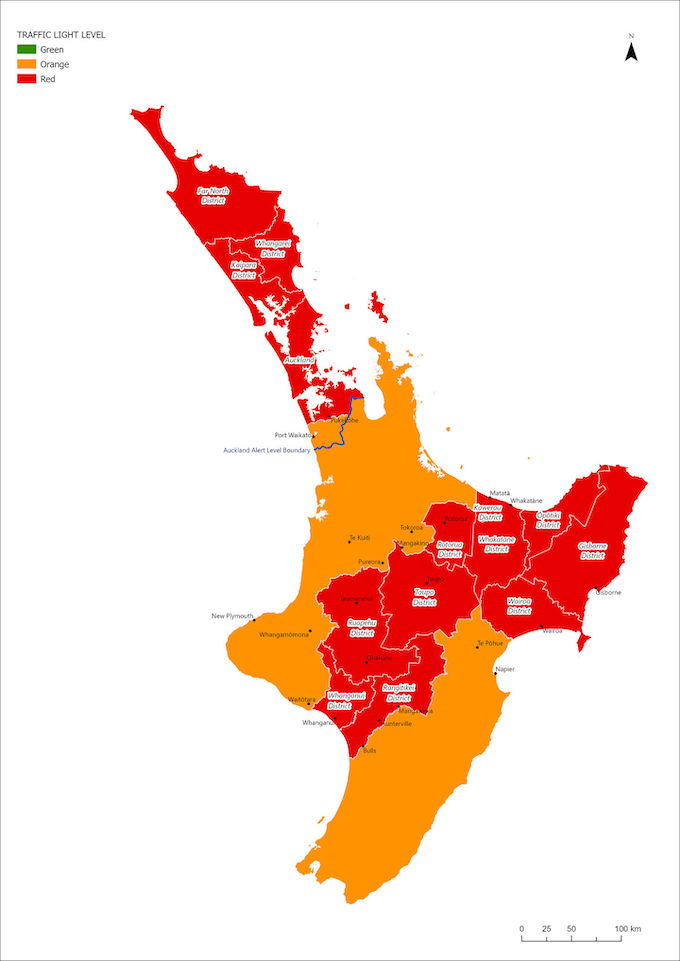New Zealand Prime Minister Jacinda Ardern has announced which regions will move into red and which into orange as the new traffic light system comes in on Friday.
Ardern confirmed that all of Northland would join the Auckland region in red, along with Taupō, Rotorua Lakes, Kawerau, Whakatāne, Ōpōtiki, Gisborne, Wairoa, Rangitīkei, Whanganui and Ruapehu districts.
All other regions would be in orange.
“At orange, the big change here for parts of the country which will enter into this setting is that for the vaccinated and where vaccine passes are used, there are no gathering limits,” Ardern said today.
“People can gather again safely. At red, it will feel a lot like level 2. Your vaccine pass lets you go everywhere but number limits of 100 will apply to most activities.”
For Aucklanders, the changes meant they would be able to see family and friends indoors again.

- There were 182 new community cases
- 93 people were in hospital with the virus
- Five of the new cases were in Northland, 167 in Auckland and 10 in Waikato
- 123 of the new cases were yet to be epidemiologically linked
- Five close contacts are self-isolating after a local border case reported yesterday in Canterbury
New omicron variant
The world may not learn the true level of the threat posed by the new omicron variant of Covid-19 for several weeks, says a University of Otago scientist.
“I think it’s right to be concerned at this moment, but we need to know more,” he said.
Institute of Environmental Science and Research principal scientist of genomics professor Mike Bunce told RNZ Morning Report the country was well-placed to deal with the new threat but it was important to maintain border protections to “buy us time”.
At the weekend, the government moved nine countries into the very high risk category, restricting travel from those countries to New Zealand citizens only and requiring a full 14 days in MIQ.
“If we see more widespread cases in those countries then we will consider whether they need to be classified as very high risk countries,” said Ardern.
Omicron does not change the advice on vaccine boosters, which are now available to anyone who had their second dose six months ago, she said.
A group of Māori kaumātua in Auckland were among the first in the country to receive their booster doses on Monday morning.
No cases of omicron have so far been identified in the country.
This article is republished under a community partnership agreement with RNZ.
Article by AsiaPacificReport.nz






